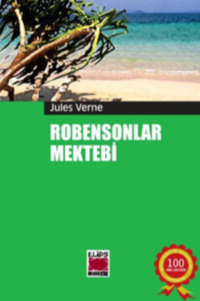
Полная версия
20,000 Leagues Under The Sea
‘But how did you get all the parts put together?’
‘I set up a workshop upon a desert island in the ocean. There, my workmen – that is to say, my brave companions whom I instructed – and I put together our Nautilus. When the work was ended, fire destroyed all trace of our proceedings on the island, which I should have blown up if I could.’
‘It must have cost you a great deal.’
‘An iron vessel costs £45 a ton. The Nautilus weighs 1500 tons. It came, therefore, to £67,500, and £80,000 more for fitting up; altogether, with the works of art and collections it contains, it cost about £200,000.’
‘You must be rich?’
‘Immensely rich, sir; I could, without missing it, pay the English national debt.’
I stared at the singular person who spoke. Was he taking advantage of my credulity?
CHAPTER 14 The Black River
The Pacific Ocean extends from north to south between the two polar circles, and from west to east between Asia and America over an extent of 145° of longitude. It is the smoothest of all seas; its currents are wide and slow, its tides slight, its rains abundant. Such was the ocean that my destiny called upon me to go over under such strange conditions.
‘Now, professor,’ said Captain Nemo, ‘we will, if you please, take our bearings and fix the starting-point of this voyage. It wants a quarter to twelve. I am going up to the surface of the water.’
The captain pressed an electric bell three times. The pumps began to drive the water out of the reservoirs; the needle of the manometer marked by the different pressures the ascensional movement of the Nautilus, then it stopped.
‘We have arrived,’ said the captain.
We went to the central staircase which led up to the platform, climbed the iron steps, and found ourselves on the top of the Nautilus.
The platform was only three feet out of the water. The front and back of the Nautilus were of that spindle shape which caused it justly to be compared to a cigar. I noticed that its iron plates slightly overlaid each other, like the scales on the body of our large terrestrial reptiles. I well understood how, in spite of the best glasses, this boat should have been taken for a marine animal.
Towards the middle of the platform, the boat, half sunk in the vessel, formed a slight excrescence. Fore and aft rose two cages of medium height, with inclined sides, and partly enclosed by thick lenticular glasses. In the one was the helmsman who directed the Nautilus; and in the other a powerful electric lantern that lighted up his course.
The sea was beautiful, the sky pure. The long vessel could hardly feel the broad undulations of the ocean. A slight breeze from the east rippled the surface of the water. The horizon was quite clear, making observation easy. There was nothing in sight – not a rock nor an island, no Abraham Lincoln, nothing but a waste of waters.
Captain Nemo took the altitude of the sun with his sextant to get his latitude. He waited some minutes till the planet came on a level with the edge of the horizon. Whilst he was observing, not one of his muscles moved, and the instrument would not have been more motionless in a hand of marble.
‘It is noon. Professor, when you are ready –’
I cast a last look at the sea, slightly yellowed by the Japanese coast, and went down again to the saloon.
There the captain made his point, and calculated his longitude chronometrically, which he controlled by preceding observations of horary angles. Then he said to me, –
‘M. Aronnax, we are in west longitude 137° 15.’
‘By what meridian?’ I asked quickly, hoping that the captain’s answer might indicate his nationality.
‘Sir,’ he answered, ‘I have different chronometers regulated on the meridians of Paris, Greenwich, and Washington. But, in your honour, I will use the Paris one.’
This answer taught me nothing. I bowed, and the commander continued, –
‘Thirty-seven degrees and fifteen minutes longitude west of the Paris meridian, and thirty degrees and seven minutes north latitude – that is to say, about three hundred miles from the coasts of Japan. Today, the 8th of November, at noon, our voyage of exploration under the waters begins.’
‘God preserve us!’ I answered.
‘And now, professor,’ added the captain, ‘I leave you to your studies. I have given ENE. as our route at a depth of fifty yards. Here are maps on which you can follow it. The saloon is at your disposition, and I ask your permission to withdraw.’
Captain Nemo bowed to me. I remained alone, absorbed in my thoughts. All of them referred to the commander of the Nautilus. Should I ever know to what nation belonged the strange man who boasted of belonging to none? This hatred which he had vowed to humanity – this hatred which perhaps sought terrible means of revenge – what had provoked it? I, whom hazard had just cast upon his vessel – I, whose life he held in his hands, he had received me coldly, but with hospitality. Only he had never taken the hand I had held out to him. He had never held out his to me.
For a whole hour I remained buried in these reflections, seeking to pierce the mystery that interested me so greatly. Then my eyes fell upon the vast planisphere on the table, and I placed my finger on the very spot where the given latitude and longitude crossed.
The sea has its large rivers like continents. They are special currents, known by their temperature and colour. The most remarkable is known under the name of the Gulf Stream. Science has found out the direction of five principal currents – one in the North Atlantic, a second in the South Atlantic, a third in the North Pacific, a fourth in the South Pacific, and a fifth in the South Indian Ocean. It is probable that a sixth current formerly existed in the North Indian Ocean, when the Caspian and Aral Seas, united to the great Asiatic lakes, only formed one vast sheet of water.
At the point on the planisphere where my finger lay, one of these currents was rolling – the Black River of the Japanese, which, leaving the Gulf of Bengal, where the perpendicular rays of a tropical sun warm it, crosses the Straits of Malacca, runs along the coast of Asia, turns into the North Pacific as far as the Aleutian Islands, carrying with it the trunks of camphor-trees and other indigenous productions, contrasting by the pure indigo of its warm waters with the waves of the ocean. It was this current that the Nautilus was going to follow. I saw that it lost itself in the immensity of the Pacific, and felt myself carried along by it. Just then Ned Land and Conseil appeared at the door of the saloon.
My companions were petrified at the sight of the marvels spread out before their eyes.
‘Where are we – where are we?’ cried the Canadian. ‘At the Quebec Museum?’
‘If monsieur allows me to say so,’ replied Conseil, ‘it is more like the Hotel du Sommerard.’
‘My friends,’ said I, ‘you are neither in Canada nor France, but on board the Nautilus, and at more than twenty-five fathoms below the sea-level.’
‘We believe what monsieur says,’ replied Conseil, ‘but really this saloon is enough to astonish even a Dutchman like me.’
During this time Ned Land, who was not much interested in conchology, questioned me about my interview with Captain Nemo. Had I discovered who he was, whence he came, whither he was going, to what depths he was dragging us? – in short, a thousand questions, to which I had not time to answer.
I told him all I knew, or rather all I did not know, and I asked him what he had heard or seen on his side.
‘I have seen nothing, heard nothing,’ answered the Canadian. ‘I have not even perceived the ship’s crew. Is it by chance, or can it be electric too?’
‘Electric!’
‘Faith, any one would think so. But you, M. Aronnax,’ said Ned Land, who stuck to his idea, ‘can you tell me how many men there are on board? Are there twenty, fifty, a hundred?’
‘I know no more than you, Land; abandon at present all idea of either taking the Nautilus or escaping from it. This vessel is a masterpiece of modern industry, and I should regret not to have seen it. Many people would accept our position only to move amidst such marvels. The only thing to do is to keep quiet and watch what passes.’
‘Watch!’ exclaimed the harpooner, ‘but there’s nothing to watch; we can’t see anything in this iron prison. We are moving along blindfolded.’
Ned Land had scarcely uttered these words when it became suddenly dark. The light in the ceiling went out, and so rapidly that my eyes ached with the change, in the same way as they do after passage from profound darkness to the most brilliant light.
We remained mute and did not stir, not knowing what surprise, agreeable or disagreeable, awaited us. But a sliding noise was heard. It was like as if panels were being drawn back in the sides of the Nautilus.
‘It is the end of all things!’ said Ned Land.
Suddenly light appeared on either side of the saloon, through two oblong openings. The liquid mass appeared vividly lighted up by the electric effluence.
Two crystal panes separated us from the sea. At first I shuddered at the thought that this feeble partition might break, but strong copper bands bound it, giving an almost infinite power of resistance.
The sea was distinctly visible for a mile round the Nautilus. What a spectacle! What pen could describe it? Who could paint the effect of the light through those transparent sheets of water, and the softness of its successive gradations from the lower to the upper beds of the ocean?
The transparency of the sea is well known, and its limpidity is far greater than that of fresh water. The mineral and organic substances which it holds in suspension increase its transparency. In certain parts of the ocean at the Antilles, under seventy-five fathoms of water, the sandy bottom can be seen with clearness, and the penetrating strength of the sun’s rays only appears to stop at 150 fathoms. But in this fluid medium through which the Nautilus was travelling, the electric light was produced in the very bosom of the waves. It was not luminous water, but liquid light.
If phosphorescent illumination in the submarine depths is admitted, Nature has reserved to the inhabitants of the sea one of her most marvellous spectacles, and I could judge of it by the effect of the thousand rays of this light. On either side I had a window opening on these unexplored depths. The darkness in the saloon made the exterior light seem greater, and we could see the same as if the pure crystal had been the panes of an immense aquarium.
The Nautilus did not seem to be moving. It was because there were no landmarks. Sometimes, however, the lines of water, furrowed by her prow, flowed before our eyes with excessive speed.
Lost in wonder, we stood before these windows, and none of us had broken this silence of astonishment when Conseil said, –
‘Well, friend Ned, you wanted to look; well, now you see!’
‘It is curious!’ exclaimed the Canadian, who, forgetting his anger and projects of flight, was under the influence of irresistible attraction. ‘Who wouldn’t come for the sake of such a sight?’
‘Now I understand the man’s life,’ I exclaimed. ‘He has made a world of marvels for himself?’
‘But I don’t see any fish,’ said the Canadian.
‘What does it matter to you, friend Ned,’ answered Conseil, ‘since you know nothing about them?’
‘I! A fisherman!’ cried Ned Land.
And thereupon a dispute arose between the two, for each had some knowledge of fish, though in a very different way.
Perhaps Conseil knew much more, and now that he had made friends with Ned, he could not allow himself to seem less learned than he. He accordingly said to him, –
‘Ned, you are a killer of fish – a very skilful fisher. You have taken a great number of these interesting animals. But I wager that you do not know how they are classified.’
‘Yes, I do,’ answered the harpooner. ‘They are classified into fish that are good for food and fish that are not.’
‘That is a greedy distinction,’ answered Conseil. ‘But do you know the difference between bony and cartilaginous fish?’
‘Perhaps I do, Conseil.’
‘And the subdivision of these two grand classes?’
‘I dare say I do,’ answered the Canadian.
‘Well, listen and remember! The bony fish are sub-divided into six orders. First, the acanthopterygians, of which the upper jaw is complete, mobile with gills in the form of a comb. This order comprises fifteen families – that is to say, the three-fourths of known fish. Type: the common perch.’
‘Perch!’ said the Canadian disdainfully; ‘fresh-water fish!’
‘Second,’ continued Conseil, ‘the abdominals, an order of fish whose ventral fins are placed behind the pectoral, without being attached to the shoulder-bones – an order which is divided into five families, and comprises most fresh-water fish. Type: the carp, roach, salmon, pike, etc.’
‘Pretty good eating,’ answered Ned Land.
‘Third,’ said Conseil, ‘the subrachians, with ventral fins under the pectoral, and fastened to the shoulder-bones. This order contains four families. Type: plaice, mud-fish, turbots, brills, soles, etc.’
‘Excellent!’ cried the harpooner, who would only think of them from their eatable point of view.
‘Fourth,’ said Conseil, nowise confused, ‘the apods with long bodies and no ventral fins, covered with a thick and often sticky skin – an order that only comprises one family. Type: the eel, wolffish, sword-fish, lance, etc.’
‘Middling! – only middling!’ answered Ned Land.
‘Fifth,’ said Conseil, ‘the lophiadae, distinguished by the bones of the carpus being elongated, and forming a kind of arm, which supports the pectoral fins. Type: the angler, or fishing-frog.’
‘Bad!’ – replied the harpooner.
‘Sixth and last,’ said Conseil, ‘the plectognathes, which include those which have the maxillary bones anchylosed to the sides of the intermaxillaries, which alone form the jaws – an order which has no real ventral fins, and is composed of two families. Type: the sun-fish.’
‘Which any saucepan would be ashamed of!’ cried the Canadian.
‘Did you understand, friend Ned?’ asked the learned Conseil.
‘Not the least, friend Conseil,’ answered the harpooner. ‘But go on, you are very interesting.’
‘As to the cartilaginous fish,’ continued the imperturbable Conseil, ‘they only include three orders.’
‘So much the better,’ said Ned.
‘First, the cyclostomes, with circular mouths and gills opening by numerous holes – an order including only one family. Type: the lamprey.’
‘You must get used to it to like it,’ answered Ned Land.
‘Second, the selachü, with gills like the cyclostomes, but whose lower jaw is mobile. This order, which is the most important of the class, includes two families. Type: sharks and rays.’
‘What!’ cried Ned; ‘rays and sharks in the same order? Well, friend Conseil, I should not advise you to put them in the same jar.’
‘Third,’ answered Conseil, ‘the sturiones, with gills opened as usual by a single slit, furnished with an operaculum – an order which includes four genera. Type: the sturgeon.’
‘Well, friend Conseil, you have kept the best for the last, in my opinion. Is that all?’
‘Yes, Ned,’ answered Conseil; ‘and remark that even when you know that you know nothing, for the families are subdivided into genera, sub-genera, species, varieties.’
‘Well, friend Conseil,’ said the harpooner, leaning against the glass of the panel, ‘there are some varieties passing now.’
‘Yes! – some fish,’ cried Conseil. ‘It is like being at an aquarium.’
‘No,’ I answered, ‘for an aquarium is only a cage, and those fish are as free as birds in the air.’
‘Well, now, Conseil, tell me their names! – tell me their names!’ said Ned Land.
‘I?’ answered Conseil; ‘I could not do it; that is my master’s business.’
And, in fact, the worthy fellow, though an enthusiastic classifier, was not a naturalist, and I do not know if he could have distinguished a tunny-fish from a bonito. The Canadian, on the contrary, named them all without hesitation.
‘A balister,’ said I.
‘And a Chinese balister too!’ answered Ned Land.
‘Genus of the balisters, family of the scleroderms; order of the plectognaths,’ muttered Conseil.
Decidedly, between them, Ned Land and Conseil would have made a distinguished naturalist.
The Canadian was not mistaken. A shoal of balisters with fat bodies, grained skins, armed with a spur on their dorsal fin, were playing round the Nautilus and agitating the four rows of quills bristling on either side of their tails. Nothing could be more admirable than their gray backs, white stomachs, and gold spots that shone amidst the waves. Amongst them undulated skates like a sheet abandoned to the winds, and with them I perceived, to my great joy, the Chinese skate, yellow above, pale pink underneath, with three darts behind the eye – a rare species.
For two hours a whole aquatic army escorted the Nautilus. Amidst their games and gambols, whilst they rivalled each other in brilliancy and speed, I recognised the green wrasse, the surmullet, marked with a double black stripe; the goby, with its round tail, white with violet spots; the Japanese mackerel, with blue body and silver head; gilt heads with a black band down their tails; aulostones with flute-like noses, real sea-woodcocks, of which some specimens attain a yard in length; Japanese salamanders; sea-eels, serpents six feet long with bright little eyes and a huge mouth bristling with teeth.
Our admiration was excited to the highest pitch. Ned named the fish, Conseil classified them, and I was delighted with their vivacity and the beauty of their forms. It had never been my lot to see these animals living and free in their natural element. I shall not cite all the varieties that passed before our dazzled eyes, all that collection from the Japanese and Chinese seas. More numerous than the birds of the air, these fish swam round us, doubtless attracted by the electric light.
Suddenly light again appeared in the saloon. The iron panels were again closed. The enchanting vision disappeared. But long after that I was dreaming still, until my eyes happened to fall on the instruments hung on the partition. The compass still indicated the direction of NNE., the manometer indicated a pressure of five atmospheres, corresponding to a depth of 100 fathoms, and the electric log gave a speed of fifteen miles an hour.
I expected Captain Nemo, but he did not appear. The clock was on the stroke of five. Ned Land and Conseil returned to the cabin, and I regained my room. My dinner was laid there. It consisted of turtle soup made of the most delicate imbricated hawksbill turtle, of a delicate white surmullet, slightly crimped, of which the liver, cooked by itself, made a delicious dish, and fillets of the emperor-holocanthus, the flavour of which appeared to me superior even to salmon.
I passed the evening reading, writing, and thinking. Then sleep overpowered me, and I stretched myself on my zostera couch and slept profoundly, whilst the Nautilus glided rapidly along the current of the Black River.
CHAPTER 15 A Written Invitation
The next day, the 9th of November, I awoke after a long sleep that had lasted twelve hours. Conseil came, as was his custom, to ask ‘how monsieur had passed the night,’ and to offer his services. He had left his friend the Canadian sleeping like a man who had never done anything else in his life.
I let the brave fellow chatter on in his own fashion, without troubling to answer him much. I was anxious about the absence of Captain Nemo during our spectacle of the evening before, and hoped to see him again that day.
I was soon clothed in my byssus garments. Their nature provoked many reflections from Conseil. I told him they were manufactured with the lustrous and silky filaments which fasten a sort of shell, very abundant on the shores of the Mediterranean, to the rocks. Formerly beautiful materials – stockings and gloves – were made from it, and they were both very soft and very warm. The crew of the Nautilus could, therefore, be clothed at a cheap rate, without help of either cotton-trees, sheep, or silkworms of the earth.
When I was dressed I went in to the saloon. It was deserted.
The whole day passed without my being honoured with a visit from Captain Nemo. The panels of the saloon were not opened. Perhaps they did not wish us to get tired of such beautiful things.
The direction of the Nautilus kept NNE., its speed at twelve miles, its depth between twenty-five and thirty fathoms.
The next day the same desertion, the same solitude. I did not see one of the ship’s crew. Ned and Conseil passed the greater part of the day with me. They were astonished at the absence of the captain. Was the singular man ill? Did he mean to alter his plans about us?
After all, as Conseil said, we enjoyed complete liberty; we were delicately and abundantly fed. Our host kept to the terms of his treaty. We could not complain, and, besides, the singularity of our destiny reserved us such great compensations that we had no right to accuse it.
That day I began the account of these adventures, which allowed me to relate them with the most scrupulous exactness, and, curious detail, I wrote it on paper made with marine zostera.
Early in the morning of November 11, the fresh air spread over the interior of the Nautilus told me that we were again on the surface to renew our supply of oxygen. I went to the central staircase and ascended it to the platform. It was 6 a.m. The weather was cloudy, the sea gray, but calm. There was scarcely any swell. I hoped to meet Captain Nemo there. Would he come? I only saw the helmsman in his glass cage. Seated on the upper portion of the hull, I drank in the sea-breeze with delight.
Little by little the clouds disappeared under the action of the sun’s rays. The clouds announced wind for all that day. But the wind was no concern to the Nautilus. I was admiring this joyful sunrise, so gay and reviving, when I heard some one coming up to the platform. I prepared to address Captain Nemo, but it was his mate – whom I had already seen during the captain’s first visit – who appeared. He did not seem to perceive my presence, and with his powerful glass he swept the horizon, after which he approached the stair-head and called out some words which I reproduce exactly, for every morning they were uttered under the same conditions. They were the following: –
‘Nautron respoc lorni virch.’
What those words meant I know not.
After pronouncing them the mate went below again, and I supposed that the Nautilus was going to continue her submarine course. I therefore followed the mate and regained my room.
Five days passed thus and altered nothing in our position. Each morning I ascended to the platform. The same sentence was pronounced by the same individual. Captain Nemo did not appear.
I had made up my mind that I was not going to see him again, when on the 16th of November, on entering my room with Ned Land and Conseil, I found a note directed to me upon the table.
I opened it. It was written in a bold, clear hand, of Gothic character, something like the German types. The note contained the following: –
‘To Professor Aronnax, on board the Nautilus.
‘Captain Nemo invites Professor Aronnax to a hunt tomorrow morning in the forest of the island of Crespo. He hopes nothing will prevent the professor joining it, and he will have much pleasure in seeing his companions also.’
‘A hunt!’ cried Ned.
‘And in the forests of Crespo Island,’ added Conseil.
‘Then that fellow does land sometimes,’ said Ned Land.








